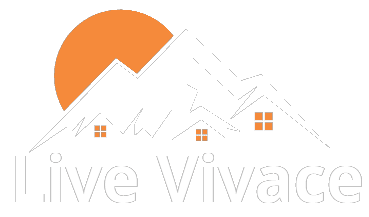Thinking about relocating your family to Canada? You’re in good company. With safe cities, excellent public schools, universal healthcare, and a reputation for welcoming newcomers, Canada remains one of the top destinations for families looking for a fresh start in 2025.
Whether you’re planning ahead or already packing your bags, this complete guide covers every step of the process — from choosing the right visa to finding schools and healthcare once you arrive.
Why Families Are Choosing Canada
Canada attracts thousands of families every year, and it’s not hard to see why:
- Free public healthcare for all residents
- Top-tier education from kindergarten to university
- Child benefit payments to help with the cost of raising kids
- Safe and clean cities with low crime rates
- A multicultural, inclusive society
- Clear pathways to permanent residency and citizenship
How to Relocate to Canada with Your Family: Step-by-Step
1. Pick the Best Immigration Program for Your Situation
| Program | Best For | Key Info |
|---|---|---|
| Express Entry | Skilled workers | Fast-track option, includes spouse and children |
| Provincial Nominee Program (PNP) | Job offers in specific provinces | Some have family-friendly streams |
| Family Sponsorship | Spouses and children of PRs | Sponsor must already live in Canada |
| Study Permit + Family | Students with kids | Spouse gets open work permit; kids can attend school free |
| Start-Up Visa | Entrepreneurs | Requires business support and available funds |
2. Apply for Visas and Gather Required Documents
Each family member will need:
- Valid passport
- Birth and marriage certificates
- Police background check
- Medical exam results
- School records (if enrolling children)
3. Choose a Family-Friendly City and Find Housing
Canada has many great places to raise a family. Here are a few top picks:
| City | Why Families Love It | Avg. Rent (3BR) |
|---|---|---|
| Ottawa, ON | Excellent public schools, clean and safe | $2,300–$2,800 CAD |
| Calgary, AB | Affordable housing, job market | $2,000–$2,500 CAD |
| Halifax, NS | Laid-back lifestyle, coastal charm | $1,800–$2,300 CAD |
| Surrey, BC | Diverse, close to Vancouver | $2,400–$2,900 CAD |
| Winnipeg, MB | Lower costs, community-oriented | $1,600–$2,000 CAD |
4. Sign Up for Provincial Healthcare
While healthcare in Canada is publicly funded, you’ll need to register once you arrive. Most provinces have a 3-month waiting period for new residents — consider buying private insurance for the first few months.
5. Enroll Your Children in School
Education is free for all children in Canada from primary to high school (Grade 12). Here’s what to expect:
| Level | Ages | Cost (Public) | What You’ll Need |
|---|---|---|---|
| Primary School | 5–11 | Free | Proof of address, birth certificate |
| Secondary School | 12–17 | Free | Immunization records |
| Post-Secondary | 18+ | $7,000–$20,000/year | Tuition varies by institution |
💡 Most areas offer both English and French school boards.
Key Benefits for Families in Canada
- Canada Child Benefit (CCB): Monthly tax-free support for children under 18
- Parental Leave: Up to 18 months with job protection
- Universal Healthcare: No premiums or surprise bills for basic care
- Safe Environment: Canada ranks among the world’s safest countries
- Cultural Diversity: Schools celebrate global cultures and welcome newcomer families
What to Do Before You Move
Checklist for a Smooth Relocation:
- Secure visas or PR status
- Get quotes for international moving services
- Translate and verify important documents
- Book short-term housing for arrival
- Purchase private insurance for initial months
- Check school application deadlines
Canada vs USA: Family Costs Compared
| Category | Canada | USA | Winner |
|---|---|---|---|
| Healthcare | Public and free | Private and costly | Canada |
| Childcare | Subsidized in some areas | Often $1,000–$2,000/month | Canada |
| Education (K–12) | Free | Free, quality varies | Tie |
| Parental Leave | Up to 18 months | Usually unpaid, limited | Canada |
| Housing | Comparable in cities | Varies widely | Tie |
Frequently Asked Questions
1. Can I bring my entire family to Canada?
Yes. Most immigration streams let you include your spouse and dependent children in one application.
2. Is healthcare really free?
Public healthcare is tax-funded and covers essential services. You must register after arriving.
3. Do I need to speak French?
Not unless you’re settling in Quebec, where French is required for most schools and jobs.
4. Can my spouse work?
Yes — spouses often qualify for an open work permit if you come through Express Entry, PNP, or on a study/work visa.
5. Will my kids have a hard time adjusting?
Most families find Canadian schools supportive, with ESL programs, welcoming classrooms, and mental health services.
Final Thoughts
Relocating your family to Canada in 2025 can be life-changing — offering stability, opportunity, and a brighter future. While the process takes planning and paperwork, Canada’s supportive systems make settling in much easier for families.
Take it one step at a time, stay informed, and soon you’ll be calling one of the most family-friendly countries in the world your new home
